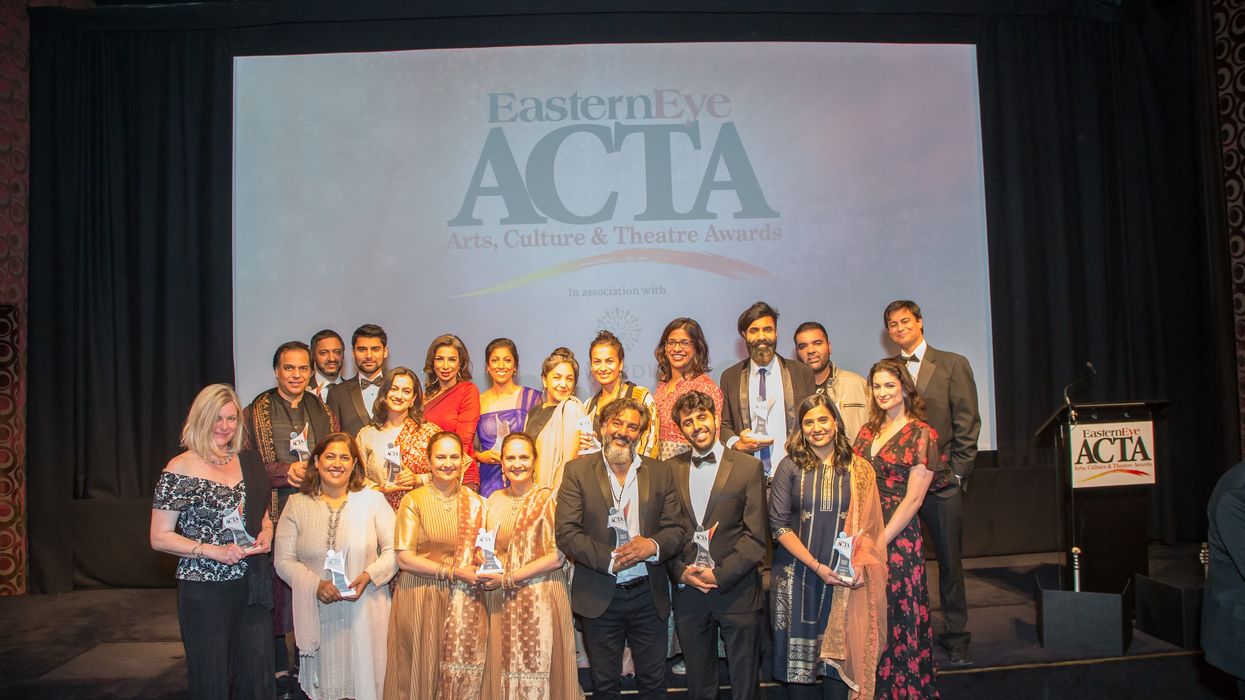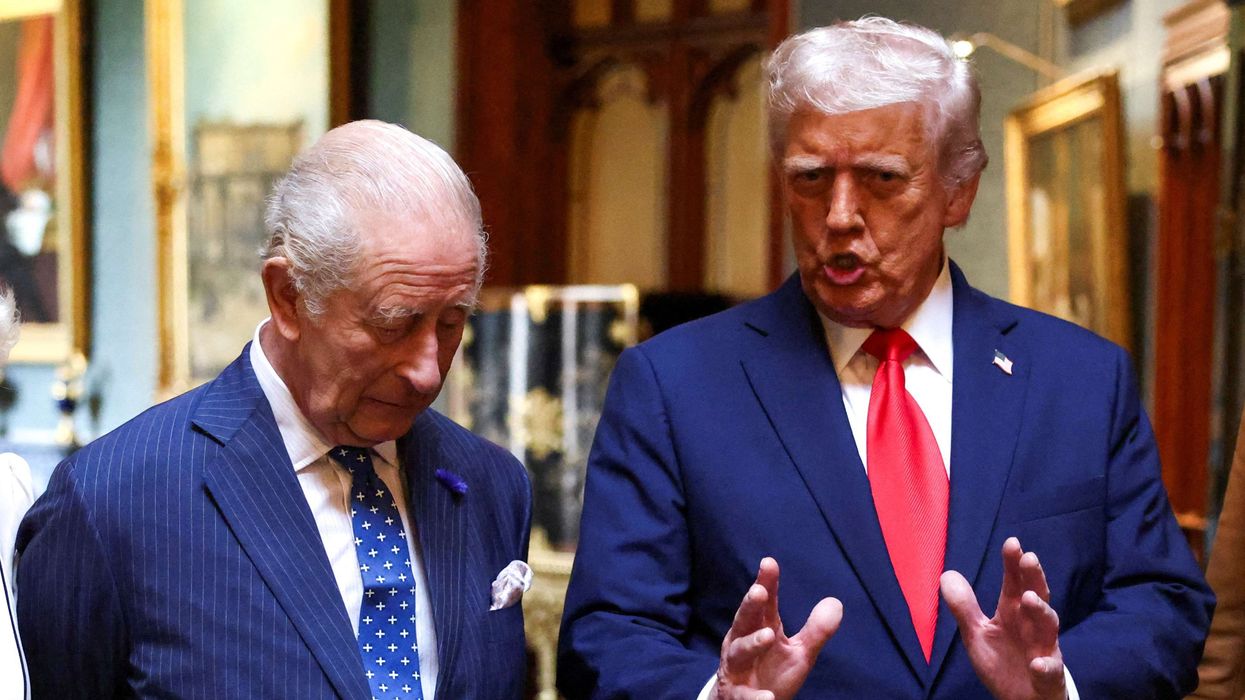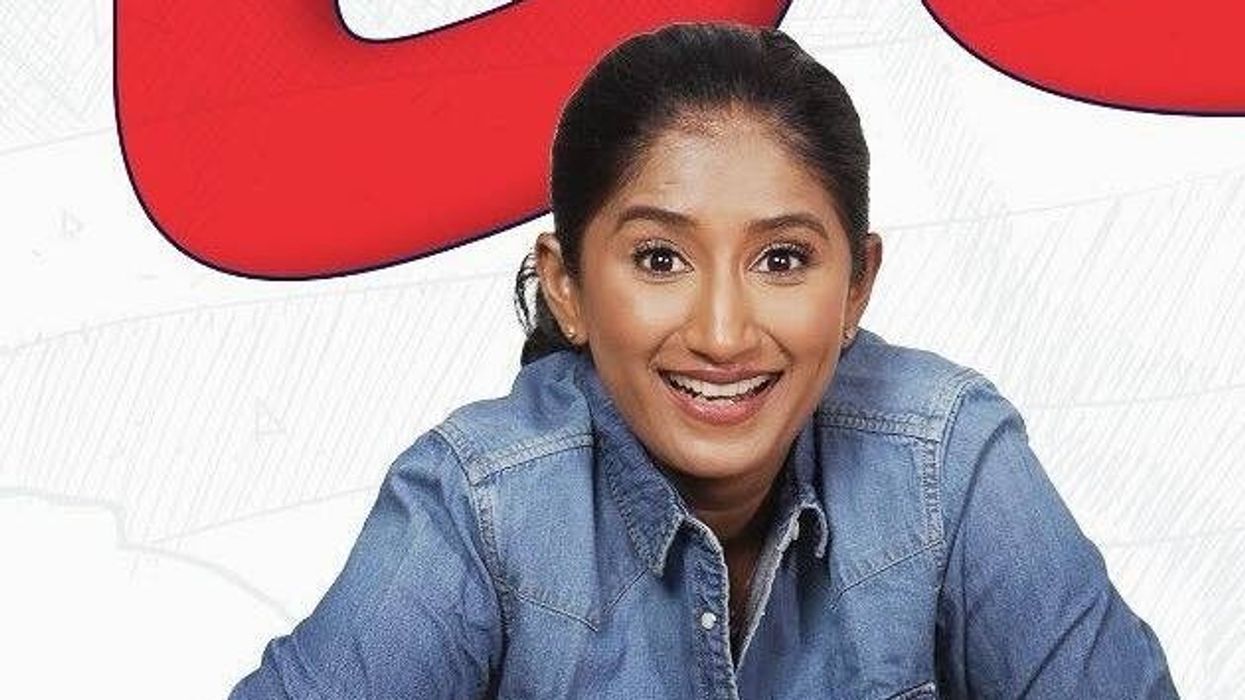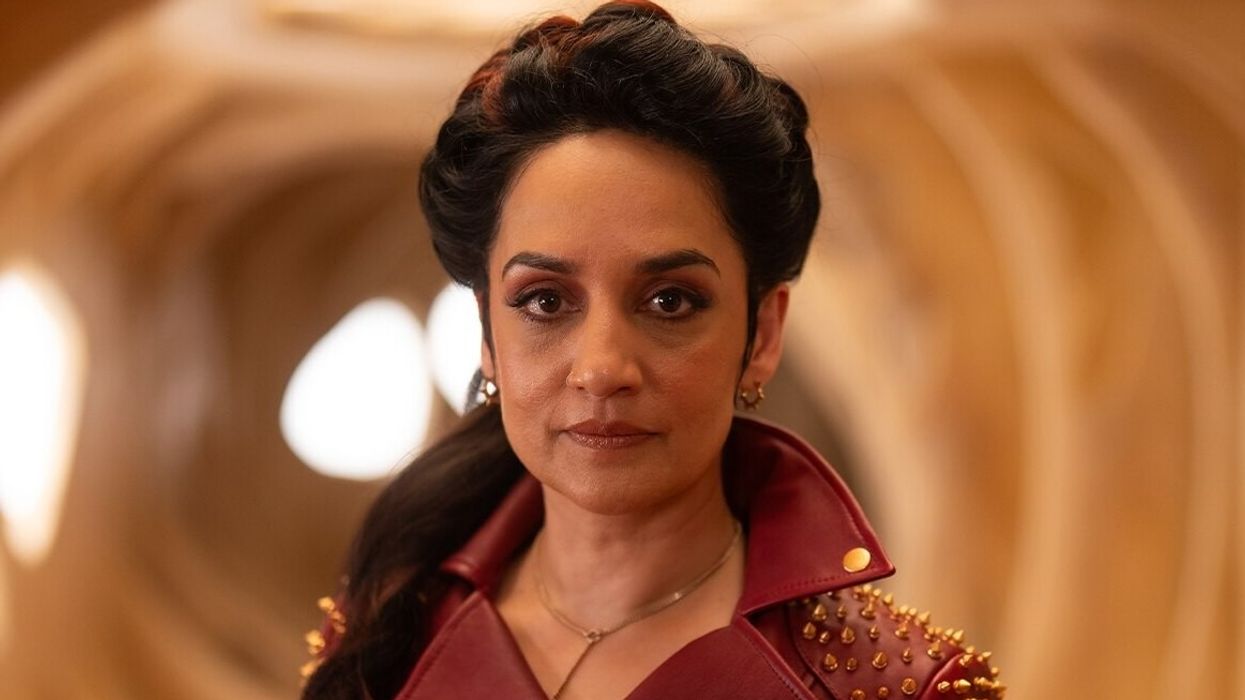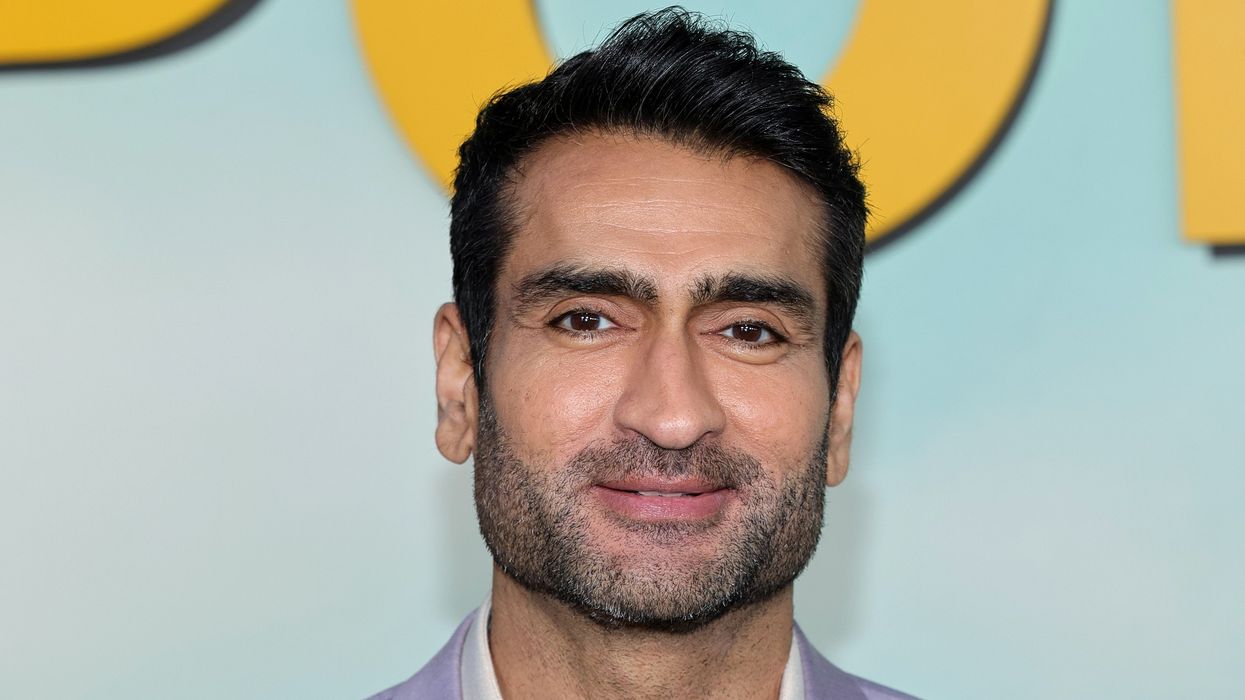SHOULD Eastern Eye list the 101 most influential British Asian artists?
We have toyed with the idea, not least because we publish a Rich List of the 101 wealthiest Asians in the UK, and a similar Power List.
Actually, making a list of the most influential Asian artists in the country is, on paper, a difficult task because you have to compare say, a dancer, with someone who is a painter. That said, the job is not impossible.
We could ask 40 or 50 artists to draw up their own lists and see what names they have in common.
However, I have an easier method. I have just gone through the 300-400 people nominated since we began the Eastern Eye Arts, Culture & Theatre Awards (ACTAs) in 2016.
The first ceremony was at the Royal Festival Hall, before it moved to the May Fair Hotel. It’s quite remarkable that nominees who didn’t win one year almost invariably achieved success subsequently. It is also worth noting that sometimes people who win an ACTA go on to achieve national or even international distinction.
Last year, an ACTA for the best book on history was introduced, which was won by Professor Joya Chatterji of Cambridge for Shadows at Noon: The South Asian Twentieth Century. That was in May. In December, she won the Wolfson, the most prestigious history writing prize in the UK.
Incidentally, this year, the ACTAs have introduced a category for crime fiction to add to the prizes for fiction, non-fiction and history. In 2018, Vaseem Khan won the fiction category with his entertaining crime thriller, The Strange Disappearance of a Bollywood Star. He would certainly make the arts power list, not only because he has established himself as a successful crime novelist, but also because in 2023, he was elected the new chairman of the Crime Writers’ Association (CWA). He is the first non-white person to occupy the post since the CWA was set up more than 70 years ago.
In 2019, the Bradford novelist AA Dhand was nominated for his crime thriller, City of Sinners, in the fiction category. He didn’t win, but in 2024, it was this very novel which the BBC adapted for a six-part TV crime series.
In 2026, it will be 10 years since the ACTAs were launched. The first generation of Asian immigrants, who came to the UK from either the Indian subcontinent or east Africa in the 1950s-1970s, were too busy battling economic hardship to have time even to think about the arts. Quite often, even those who were educated were forced to work in factories because their qualifications were not recognised in Britain.
If their UK-born children, who are now in their 60s, considered going into the arts, they were encouraged by their parents to consider more dependable careers in medicine, law or accountancy. But the children of those children, who are now in their 20s or early 30s, have generally not faced those hurdles, especially if their parents are in the arts.
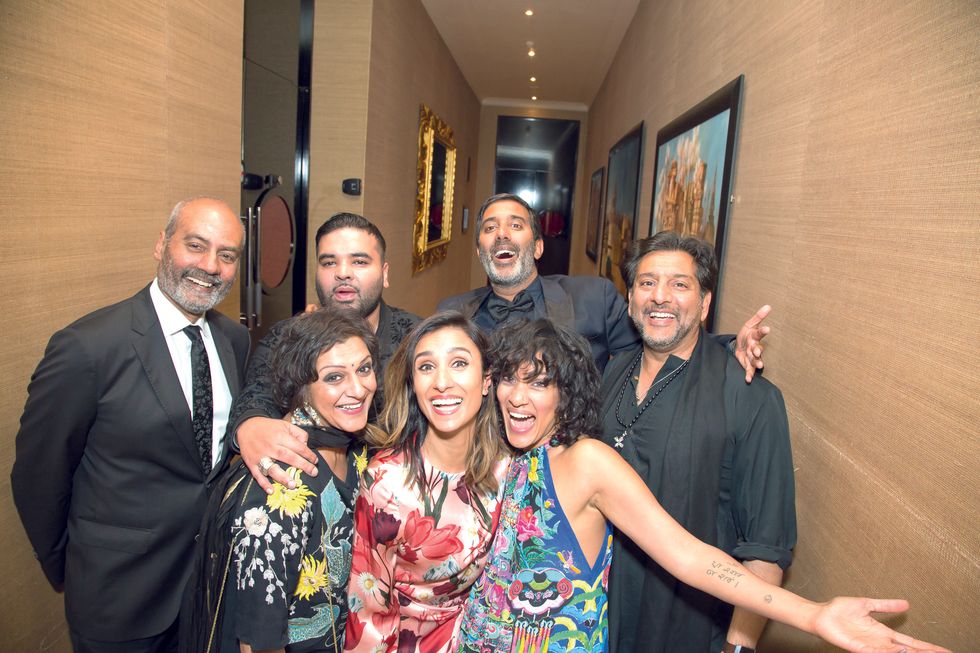
For example, Shaheen Khan’s daughter, Sophie Khan Levy is, like her mother, also an actress. There are other examples – Meera Syal’s daughter, Milli Bhatia, is a theatre director. Her father is the journalist Shekhar Bhatia. Sangeeta Datta is a cinema academic. Her son, Soumik Datta, has become a well-known sarod player.
When Nihal Arthanayake compered the first ACTAs in the Royal Festival Hall in 2016, he joked: “This evening has personal significance for me. When I was 10 years old, I approached my father nervously because I wanted to tell him about what I wanted to be when I grew up.
“As he sat on the sofa reading the newspaper I stood before him building up the courage to speak to him. I inhaled deeply and said, ‘Daddy I want to be an actor.’ He didn’t even look up from his paper and replied, ‘Darling, it’s pronounced doctor.’”
Today, the pendulum, has swung, if anything, too much the other way. The older generation of Asians who went to university tended to do such subjects as mathematics, medicine, engineering or accountancy. Their children had the confidence to do history, French, German and the humanities.
One of the difficulties with a British education is that children are forced to choose between the sciences and the arts far too early in their lives. What is needed to produce well-rounded young people is knowledge of both. That a gap was opening up between the sciences and the arts was identified in CP Snow’s The Two Cultures and the Scientific Revolution, his landmark 1959 Rede Lecture (still worth reading).
How should children of the children, now in their 20s, bring up their children? Perhaps they should expose them to colour, crayons and picture books, take them to museums and galleries when they are still toddlers and to children’s theatre when they are a bit older. Parents should make the arts fun for them.
At the moment, older Asians still feel intimidated about going to, say, mainstream theatre. They might venture out if the subject matter is Asian, but they will not go to the National Theatre or the West End to see something that is mainstream. That is probably why it is best to give children the experience of going to the Science Museum, the Natural History Museum, the British Museum or the V&A as a normal part of their growing up.
With ACTA, Eastern Eye is inclined to take a long-term view, and plan not for the next couple of years or even the next 10 years but for the next 25 years. One hopes that by then, the ACTA beacon would have passed to today’s children.
What about the Power List for British Asian artists? In no particular order, these are some of the names of the ACTA winners or nominees that have cropped up since 2016 (other than the ones already mentioned): Shanti Panchal; Sonia Sabri; Naughty Boy (Shahid Khan); Ram Shergill; Ritula Shah; Nish Kumar; Asif Kapadia; Indhu Rubasingham; Asif Khan; Kiran Sonia Sarwar; Preeya Kalidas; Sanjeev Bhaskar; Shobu Kapoor; Nikesh Patel; Anita Anand; Divia Patel; Dev Patel; Parminder Nagra; Archie Panjabi; The Singh Twins, Rabindra and Amrit; Rana Begum; Anish Kapoor; Sacha Dhawan; Indira Varma; (the late) George Alagiah; Anoushka Shankar; Preti Taneja; Iqbal Khan; Pravesh Kumar; Vinay Patel; Nitin Ganatra; Kulvinder Ghir; Nikki Bedi; Bhasker Patel; Sona Datta; Shobna Gulati; Priyanga Burford; Maya Sondhi; Mandip Gill; Naga Munchetty; Sudha Bhuchar; Kristine Landon-Smith; (the late) Anwar Hussein; Anjana Vasan; Meneka Das; Tanika Gupta; Himesh Patel; Kusoom Vadgama; Reeta Chakrabarti; Lolita Chakrabarti; Patricia Rozario; Chila Burman; Mishal Husain; Nadiya Hussain; Rani Khanam; Sheela Banerjee; Neema Shah; Hafsa Zayyan; Sathnam Sanghera; Hiran Abeysekera; Osman Yousefzada; Amit Sharma; Saachi Sen; Mikhail Sen; Rishi Nair; Aysha Kala; Najma Akhtar; Akash Bhatt; Natasha Kumar; Amina Khayyam; Seeta Patel; Sanjeev Sahota; Zarina Bhimji; Reshma Ruia; Kavita A Jindal; Mona Dash; Nadia Kabir Barb; Radhika Kapur; Sagar Arya; Deblina Chakrabarty; Khadija Rouf; Abir Mukherjee; Manoj Malde; Marina Wheeler; Neel Mukherjee; Chetna Makan; Charlie XCX; Nitin Sawhney; Ayesha Hazarika; Paul Choudhry; Shuham Saraf; Paul Sinha; Dr Ranj Singh; Mira Kaushik; Anita Rani; Gurinder Chadha; Pooja Ghai; Suman Kaur; Mahtab Hussain; Raj Ghatak; Riz Ahmed; Simone Ashley; Charithra Chandran; Waris Hussein; Manveen Rana; Shazia Mirza; Romesh Ranganathan; Tony Jayawardena; Adeel Akhtar; Zubin Varla; Adil Ray; Cauvery Madhavan; Manjinder Virk; Anjli Mohindra; Mavin Khoo; Akash Odedra; Shomit Dutta (that’s enough: Ed)
One area of concern ahead of the ACTAs on Friday (23) is Sir Keir Starmer’s reported plan either to sack Lisa Nandy as culture secretary or even get rid of her entire department. What has he got against her? She has just signed a cultural agreement with India.
